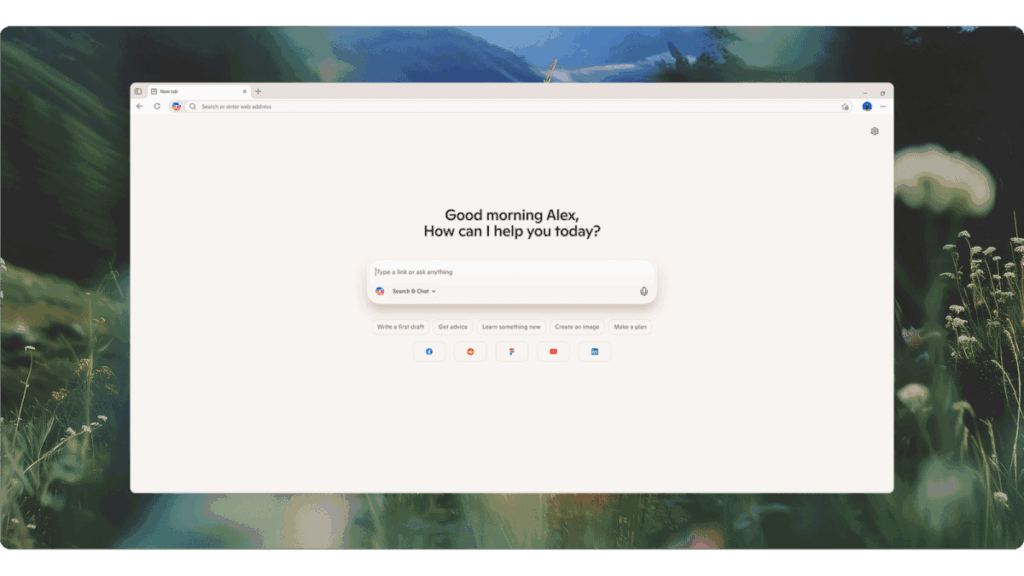With the growing demand for AI-powered browsers, Microsoft launched a new feature on Monday with an Edge browser called Copilot Mode. This allows users to browse the web while AI helps them. The idea is that AI can be a helper who can understand what users are researching, predict what they want to do, and then take action on their behalf.
It’s still not clear how well it actually works, but Microsoft points out that Copilot mode is still considered an experimental feature. It also opted in by default during these tests and is currently free for MAC or PC users with access to Copilot.
At boot time, Copilot mode has several major components, and more along the way.
Once enabled, Edge users will be presented with a new tab page where you can search, chat and navigate the web with the help of Copilot. Once you visit a specific web page, you can rely on Copilot for further help. For example, Microsoft shows someone how to ask an AI companion if they can make the recipe they’re watching vegan instead, and Copilot suggests an alternative.
This type of question is something that users might ask AI chatbots today, but this saves you the steps you have to paste into the content you want to refer to.
Or, someone could ask the AI to simply present the recipe itself so that they could read the “life stories” that now accompany so many online recipes.

Additionally, Microsoft claims that Copilot can handle a variety of tasks on your behalf, such as booking reservations, creating shopping lists, and drafting content.
This “agent” use of the web is the next big leap in the AI browser race, but it is unclear whether consumer adoption will continue naturally. Of course, the goal is to make daily tasks easier to perform, such as a room on Booking.com or a flight via Kayak. However, depending on your familiarity with the website in question, if you repeatedly chat with AI to perform your options and needs, it’s not necessarily better or faster than doing it yourself.
Still, Copilot allows for audio input. This is useful for those with limited mobility when it comes to booking things online, or for those who are not tech-savvy. (Later, Microsoft says that users can allow Copilot to manage more advanced actions like booking in additional contexts such as credentials and history. For now, a little more manual.)
What’s more interesting is probably Copilot’s ability to become a research companion. With your permission, Copilot can view all open tabs to understand what that person is viewing. This is useful if you’re doing some kind of product comparison or online research, such as pricing flights and hotels across multiple sites. Again, these are AI chatbot use cases, but baking in a browser can speed up the process of translating user needs into digital helpers.
In the future, Copilot will encourage people to pick up projects and what they’re investigating from where they left off by recommending the next step, Microsoft says.
The company emphasizes that when Copilot chooses to allow it, you can only access someone’s viewing content, which is transparent to the end user in a visual queue. However, the idea that you can toggle between features that you can view and listen during a search can make some people unstable.
Source link

